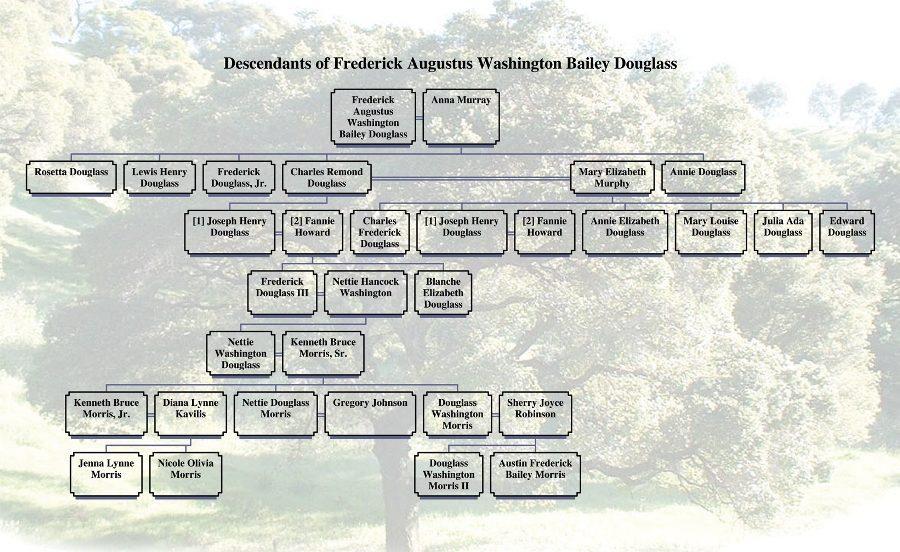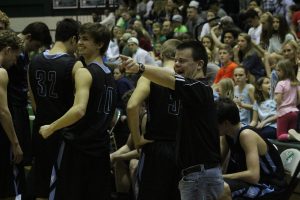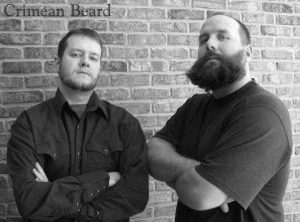Family legacy provides opportunity for reform
Courtesy of the Frederick Douglass Family Initiatives
A pedigree chart displays junior Doug Morris’ extensive family line. Morris has ties to Frederick Douglass and Booker T. Washington, whose bloodlines combined through his great grandmother, Nettie Hancock Washington, and great grandfather, Frederick Douglass III.
March 3, 2017
When abolitionists Frederick Douglass and Booker T. Washington were born, they found themselves in the unforgiving midst of servitude.
Both born into slavery in the Chesapeake region, Douglass’ and Washington’s early lives consisted of performing strenuous labor and facing the consequences associated with being a slave before claiming their freedom in later years.
Despite their initial struggles, both men went on to become prominent names in the abolitionist movement through their exceptional abilities and expertise in leadership. For the majority of his lifetime, Douglass devoted his efforts toward not only banishing the practice of slavery but also advocating equality for disenfranchised groups, whereas Washington served as an advocate for education and industrial work among the African American community following the Civil War.
While most students merely learn about Douglass’ and Washington’s accomplishments in their history classes, junior Doug Morris shares a special connection with both historical figures beyond the pages of a textbook.
“I’m the seventh generation descendant of Frederick Douglass and sixth generation descendant of Booker T. Washington,” Morris said. “I’m related to both of them through my dad’s side of the family.”
Aside from being able to tell others this fun fact about himself, Morris notes that there are definite perks of being a descendant of these two powerful influencers. “I have a full scholarship to Tuskegee University, which was founded by Booker T. Washington, and I also have the opportunity to participate in several events, such as the unveiling of the Frederick Douglass statue in the White House in 2013,” Morris said.
Morris and his family have realized that beyond such benefits lies a greater opportunity to shed light on an international crime: human trafficking. Commonly referred to as a form of modern-day slavery, human trafficking involves the illegal transportation of individuals “for the purpose of forced labor or sexual exploitation,” Morris said.
While human trafficking is a widespread issue, it has become more prevalent throughout cities in the United States in recent years. “Living near Atlanta, one of the top human trafficking destinations in the country, I’ve been learning about this issue for several years, and it has only gotten worse over time,” Morris said.
In response to the rise of human trafficking in the nation, Morris’ grandmother, Nettie Washington Douglass, and uncle, Kenneth B. Morris, formed the Frederick Douglass Family Initiatives in June of 2007. The organization seeks to raise awareness about and put an end to human trafficking.
In the spirit of Morris’ ancestors, the organization takes pride in working to extend liberation to all individuals. “FDFI’s objective is to advance freedom through knowledge and strategic action,” Morris said. “We believe that everyone is born equally free, and we strive to spread our message to every corner of the map.”
In an effort to educate others of the reality of human trafficking, Morris’ uncle travels around the country to several schools and events, sharing his methods for human trafficking prevention.
Morris himself has been involved in his family’s organization for the past several months. “While I cannot yet travel across the country with my uncle and grandmother, I am in charge of managing all contracts collected on their journeys,” Morris said.
Although Morris has yet to join his relatives in spreading the word, he has noticed significant progress in the organization’s work over the years. “I think that we are slowly but surely reaching our goal of raising awareness about human trafficking throughout the country,” Morris said. “We have also begun spreading our message to other countries and regions.”
Working with other organizations with similar motives has helped strengthen awareness of the issue. “The FDFI has also partnered with Three Strands Global and Love Never Fails, both organizations that are committed in the fight against human trafficking,” Morris said.
As of now, the organization has started working on the Trafficking-Free Community project. “The purpose of this initiative is to reduce the amount of child human trafficking through classroom curricula and teacher training,” Morris said.
While the FDFI places notable emphasis on its founders’ lineage to two of the most influential abolitionists in American history, Morris assures that its primary purpose is to abolish human trafficking through reform and, as a result, make a difference in the world. “Our family’s intention behind the organization is not to solely continue our legacy, but instead help abolish the crime of human trafficking [with its victims in mind],” Morris said.
By taking action to suppress human trafficking, Morris ultimately hopes to not only bring relief to those affected by the crime but also begin creating a legacy of his own. “I believe my family has done a good job of not necessarily pressuring me to be exceptional, but encouraging me to always put my best foot forward,” Morris said. “Because of them, I’ve learned that the only standards I need to meet are my own, not my ancestors’.”








